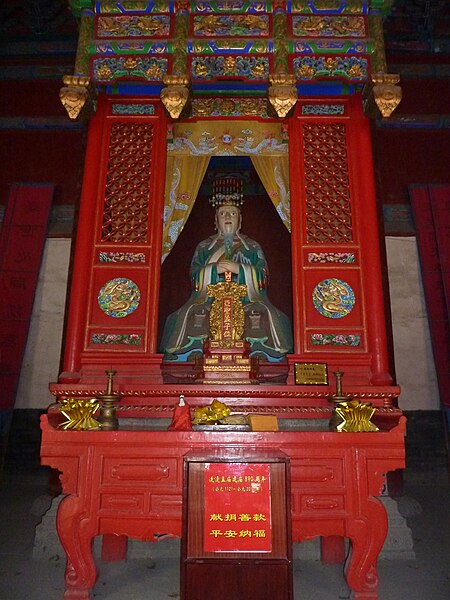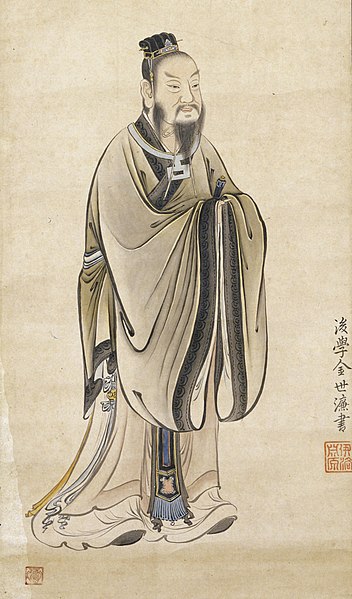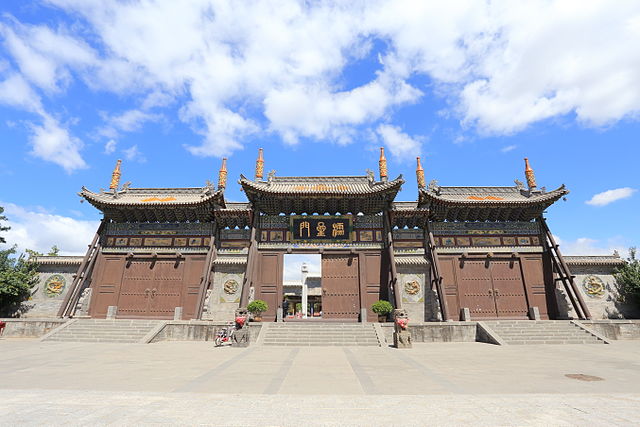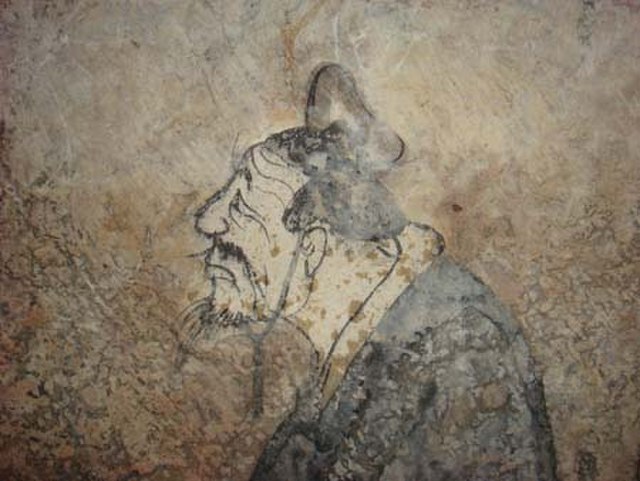Mencius ; born Meng Ke ; or Mengzi was a Chinese Confucian philosopher who has often been described as the "second Sage" (亞聖), that is, second to Confucius himself. He is part of Confucius' fourth generation of disciples. Mencius inherited Confucius' ideology and developed it further. Living during the Warring States period, he is said to have spent much of his life travelling around the states offering counsel to different rulers. Conversations with these rulers form the basis of the Mencius, which would later be canonised as a Confucian classic.
As depicted in the album Half Portraits of the Great Sage and Virtuous Men of Old (至聖先賢半身像), housed in the National Palace Museum
An image of Mencius in the sanctuary of the Mencius Temple, Zoucheng
Mencius, from Myths and Legends of China, 1922 by E. T. C. Werner
Painting of Mengzi by Kanō Sansetsu. Japan, Edo period, 1632.
Confucianism, also known as Ruism or Ru classicism, is a system of thought and behavior originating in ancient China, and is variously described as a tradition, philosophy, religion, theory of government, or way of life. Confucianism developed from teachings of the Chinese philosopher Confucius (551–479 BCE), during a time that was later referred to as the Hundred Schools of Thought era. Confucius considered himself a transmitter of cultural values inherited from the Xia (c. 2070–1600 BCE), Shang (c. 1600–1046 BCE) and Western Zhou dynasties (c. 1046–771 BCE). Confucianism was suppressed during the Legalist and autocratic Qin dynasty (221–206 BCE), but survived. During the Han dynasty, Confucian approaches edged out the "proto-Taoist" Huang–Lao as the official ideology, while the emperors mixed both with the realist techniques of Legalism.

Temple of Confucius of Jiangyin, Wuxi, Jiangsu. This is a wenmiao (文庙), that is to say a temple where Confucius is worshipped as Wendi, "God of Culture" (文帝).
Gates of the wenmiao of Datong, Shanxi
Confucius in a fresco from a Western Han tomb in Dongping, Shandong
Painting of Confucius donning traditional robes, by Wu Daozi, 8th century








